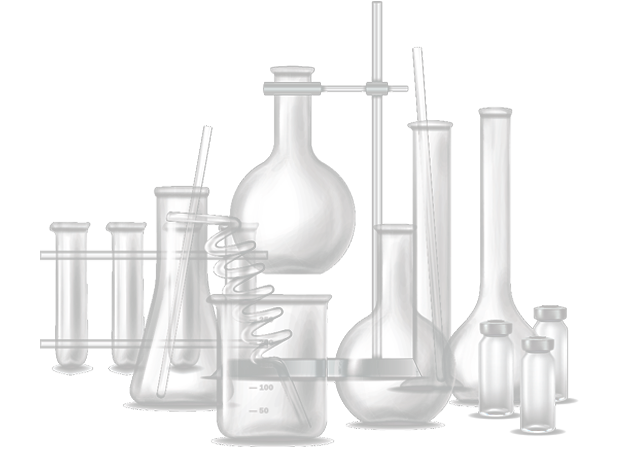Chemical Industry
Upgrade your organization to an intelligent enterprise to access actionable insights from unified, real-time data and enhanced processes.

Chemical Industries face common challenges related to market, supply chain, production, quality, safety, environment, and compliance. It is important to a Chemical Organization to have efficient IT and digital systems to build an efficient Supply Chain to deliver products on schedule to customers. The system should be efficient to cater to all kinds of compliances. With the help of real-time insights, accurate decisions and appropriate time could be taken by the management.
Addressing your most pressing challenges
Our Solution offers chemical manufacturers comprehensive enterprise solutions to enhance safety and compliance, accelerate time-to-market, boost throughput, and optimize productivity.

Make SI & OP process a winning strategy
- Improve predictiveness with machine-learning enabled demand sensing
- Create balanced plans with a constraint-based optimization engine
- Optimize international shipping routes and increase visibility of inventory in transit
- Perform finite-capacity planning that adheres to constrains and bottlenecks
- Run “what-if” scenarios to optimize between time, volume, costs, and price
Optimize asset productivity
Institutionalize predictive asset maintenance to increase throughput, reduce costs, and improve safety
- Increase capacity utilization by improving overall equipment effectiveness (OEE)
- Maintain high uptime for high profitability
- Improve safety and regulatory compliance with prescriptive dashboards and planned shutdowns
- Increase reliability with predictive maintenance via extended reality (XR) and artificial intelligence (AI)
- Jumpstart capital expenditure process and drive accuracy
Accelerate innovation and improve ROI on R&D spend
Improve return on R&D by automating and standardizing formulation and new product innovation processes
- Enable quick innovation via data-driven formulation development
- Check for ingredient allowance and compliance per requirements and targets
- Improve project success by leveraging stage-gate process management capabilities
- Conduct scenario comparisons for costs, margins, and performance
Increase employee productivity
Reduce time spent on finding the right talent and increase focus on employee engagement, training, and team dynamics
- Tie output, quality of work, and certifications to performance and compensation
- Find the right talent based on technical requirements and aptitude/personality parameters
- Flag advanced certification and license requirements for EHS compliance
- Improve employee allocation and management
Create a platform for digital transformation
- Apply last-mile, industry-specific functionality in a scalable and secure cloud implementation with extensibility for personalization instead of customization
- Deploy as cloud-based multi-tenant via Amazon Web Services® (AWS®) or on-premises
- Improve decision-making with IoT connectors AI, machine learning, predictive analytics, and more
- Increase productivity with social collaboration, role-based homepages, and industry-specific KPIs
Make the most of it
Turning Challenges into Great Opportunities
Competitively addressing turbulence depends on the ability to view transformation through the lens of six fundamental challenges.
R&D Pressure across the Product Portfolio
The imperative to resist margin shrinkage, mitigate risks, increase ROI, and boost growth calls for innovative products and services that offer business value and foster close partnerships with customers. By pushing forward the adoption of advanced technologies to drive global R&D, supplier, and customer collaborations and joint ventures, businesses can prevent commoditization.
The Need for Vertical Integration
Evolving production facilities with a balance of high efficiency, global scale, flexibility, and intelligent responsiveness allows supply chains to weigh the synergistic benefits of integrated manufacturing plants or industrial parks against the flexibility of smaller plants. As a result, businesses can leverage new opportunities with disruptive business models, such as making raw materials instead of buying them and producing semi-finished or even finished goods.
Global Supply Chain Complexity
Global supply chains must be secure enough to mitigate volatile market conditions, such as global health emergencies, rising prices for raw materials and energy, and other factors that impact economic conditions. Companies can gain this advantage by establishing commercial and logistical transparency to support optimization and global planning of demand, sales, and operations.
Hidden Advantages of Business Networks
The imperative to resist margin shrinkage, mitigate risks, increase ROI, and boost growth calls for innovative products and services that offer business value and foster close partnerships with customers. By pushing forward the adoption of advanced technologies to drive global R&D, supplier, and customer collaborations and joint ventures, businesses can prevent commoditization.
Compliance and Sustainability Urgency
A primary objective for any chemical business is ensuring compliance with industry regulations. Yet, B2B customers also favor suppliers that help meet their own environmental, social, and governance (ESG) mandates. Sustainable businesses and innovations provide balance between these two expectations, creating a highly sought-after competitive edge by gearing products and services towards a circular economy.
Business Agility
The industry’s dynamic and fast-changing environment of mergers, acquisitions, and divestitures is creating tremendous complexity and pressure for permanent change and adaptation. Chemical companies need to balance industry-wide globalization and centralization while increasing business agility.








